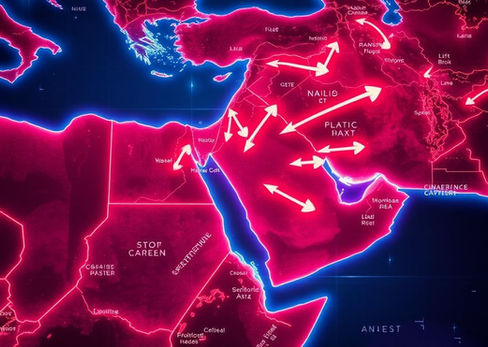Understanding Russian Politics and Diplomacy: Key Insights
- Aug 9, 2025
- 3 min read

In today's climate, understanding Russian politics and diplomacy is crucial for grasping global dynamics. The interplay between Russian leadership and international figures remains a significant focus of discourse. For instance, Belarusian President Alexander Lukashenko has expressed his eagerness to facilitate trilateral dialogue among key leaders, specifically Vladimir Putin from Russia, Donald Trump from the USA, and Ukraine's Vladimir Zelensky. The proposed sites for these discussions, namely Minsk, Istanbul, and Geneva, highlight the diplomatic maneuvering involved in such high-level negotiations.
Intricacies of Russian Politics and Diplomacy
Russian politics and diplomacy embody a continuous evolution shaped by daily events and geopolitical shifts. The strategic decisions, especially concerning international relations, illuminate Russia's approach to diplomacy. Although the focus is often on high-profile meetings, the underlying mechanisms, such as diplomatic readiness, public sentiment, and historic conflicts, provide a richer context. For instance, Lukashenko's statement about preparing to host these leaders underscores the importance of Belarus in regional diplomacy, as it illustrates a nuanced role amidst larger powers.
Furthermore, discussions surrounding American-Russian relations are filled with complexity. The importance of negotiations is accentuated as they present opportunities for resolution and collaboration, hinging on varied factors ranging from mutual interests to historical grievances. The noted willingness from both sides to engage in talks can signal a shift towards potential cooperation, which directly impacts not only their bilateral ties but also broader international stability.
Moreover, the specifics of how meetings get organized—such as the agreement on location in Minsk—demonstrate a careful balancing act in the realm of diplomacy. Each choice reflects political signals and calculated impressions that might affect future negotiations. Analyzing these nuances sheds light on how leaders engage with one another, considering how public perceptions and internal pressures can shape their diplomatic strategies.
In addition, the ongoing backdrop of the Ukraine crisis has put immense pressure on relationships between the U.S. and Russia. The potential for new sanctions looms large in discussions led by President Trump, indicating that economic pressures remain a significant tool of diplomacy. By reducing deadlines for agreements, Trump’s approach exemplifies how time constraints can manipulate negotiations and propel countries towards convergence or conflict.
Consequently, the next stages of these discussions are highly anticipated by observers keen on examining how negotiations will unfold between the involved parties. Both the Kremlin's readiness and Lakshenko's proactive statements suggest that a collaborative path, albeit with challenges, may become conceivable if found common ground is viable.
Future Directions in Russian Politics and Diplomacy
The future of Russian politics and diplomacy lies in how effectively these dialogues can transform into tangible outcomes. As Lukashenko positioned himself as a mediator, he highlighted the benefits of hosting discussions, emphasizing the need for collective efforts in stabilizing relations. Diverse perspectives are integral to the negotiations, as understanding each actor's historical context could facilitate breakthroughs.
American readiness to engage in talks, coupled with Putin's openness, collectively paints a picture of an evolving landscape. The upcoming trilateral meetings may set the stage for redefined relationships, possibly altering perceptions not only between these countries but also among allies and other international players.
It's worth noting that the internal dynamics within Russia regarding these discussions remain complex. Domestic opinion can significantly influence foreign policy, particularly when dealing with nation-state relations. For instance, public sentiment against perceived aggressions or sanctions can reshape how Russian leaders approach negotiations and their posture on the world stage.
This intersection of public opinion and diplomacy can result in fluctuations in positions, showcasing how leaders must balance international objectives against national sentiments. Therefore, monitoring how these conversations evolve will be key to understanding Russia's larger diplomatic strategy moving forward.
Ultimately, as these discussions are built towards a potentially impactful agreement, observance of the Russia-U.S.-Ukraine triangular relations will provide insights into how current geopolitical challenges can yield opportunities for long-lasting resolutions in international relations.
From our network :













































Comments